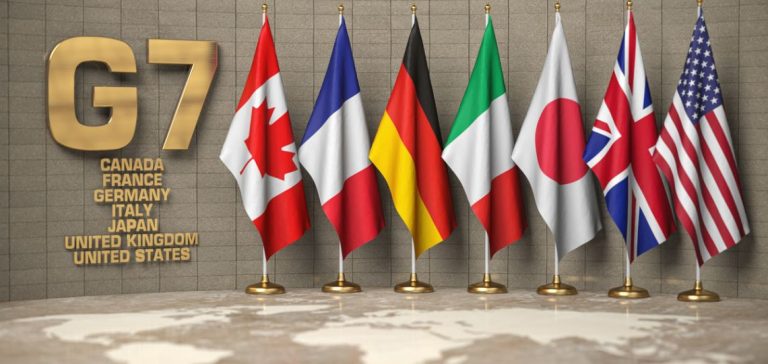The United States, in coordination with G7 leaders, is considering imposing new sanctions and other measures in response to Iran’s recent attack on Israel. This decision comes amid heightened tensions in the Middle East, where relations between Iran and its neighbors remain particularly strained. Meanwhile, the US Department of the Treasury has announced a new series of sanctions targeting Iran-backed Houthi rebels in Yemen.
During a press conference on October 2, State Department spokesperson Matthew Miller stated, “We can always look to identify new ways to impose sanctions on Iran or increase enforcement of our existing sanctions.” He added that some of these measures could come from international partners, emphasizing the importance of a coordinated response beyond just the United States.
Impact on Iranian Oil Exports
According to a note from ClearView Energy Partners on October 1, a portion of Iran’s oil exports remains difficult to sanction due to the limited involvement of Chinese importers in the US financial system. However, more than 800,000 barrels per day could be blocked through strengthened sanctions enforcement actions. This prospect is supported by a bipartisan group of US lawmakers who recently urged the Biden administration to use new sanction authorities included in the national security package passed in April to further restrict Iran’s oil sales to China.
Reduction of Iranian Oil Production
Iran’s crude oil production averaged 3.18 million barrels per day in August, according to the latest Platts OPEC+ survey by Commodity Insights. In comparison, the “maximum pressure” sanctions campaign initiated by the Trump administration in 2018 had reduced Iran’s oil production to approximately 2 million barrels per day.
Calls for Military Response
In addition to economic sanctions, some political leaders are calling for a targeted military response against Iran’s oil sector. Senator Lindsey Graham, Republican from South Carolina, stated on October 1, “I urge the Biden Administration to coordinate an overwhelming response with Israel, starting with Iran’s ability to refine oil.” Iran has a refining capacity of about 2.4 million barrels per day spread across ten main sites, which represents a significant strategic leverage.
Sanctions Against the Houthis
On the sanctions front against the Houthis, the Office of Foreign Assets Control (OFAC) of the US Department of the Treasury sanctioned one individual and three companies involved in smuggling weapons for the Houthi rebels on October 2, according to a statement. OFAC also targeted one entity and two tankers linked to the transport of illicit Iranian oil. The sanctioned tankers include the Gabon-flagged Izumo and the Cook Islands-flagged Frunze, both used for transporting illegal oil and petroleum products. Gemini Marine Limited, the owner and operator of the tankers, was also sanctioned.
On the weapons smuggling front, OFAC targeted key procurement operatives and suppliers based in Iran and China who have helped the Houthis deploy an arsenal of advanced missiles and drones against US and allied interests. Among the sanctioned entities are Shenzhen Boyu Imports and Exports, Shenzhen Jinghon Electronics, and Shenzhen Rion Technology. Additionally, the Iranian operative Hasan Ahmad Hasan Muhammad al-Kuhlani was sanctioned for his role in facilitating the Houthis’ arms smuggling.
These measures are part of a broader strategy aimed at economically and militarily isolating Iran while seeking to mobilize an international coalition to enhance the effectiveness of the sanctions. The primary objective is to reduce Iran’s ability to finance its military activities and support militant groups in the region while exerting significant economic pressure on the Iranian regime.






















